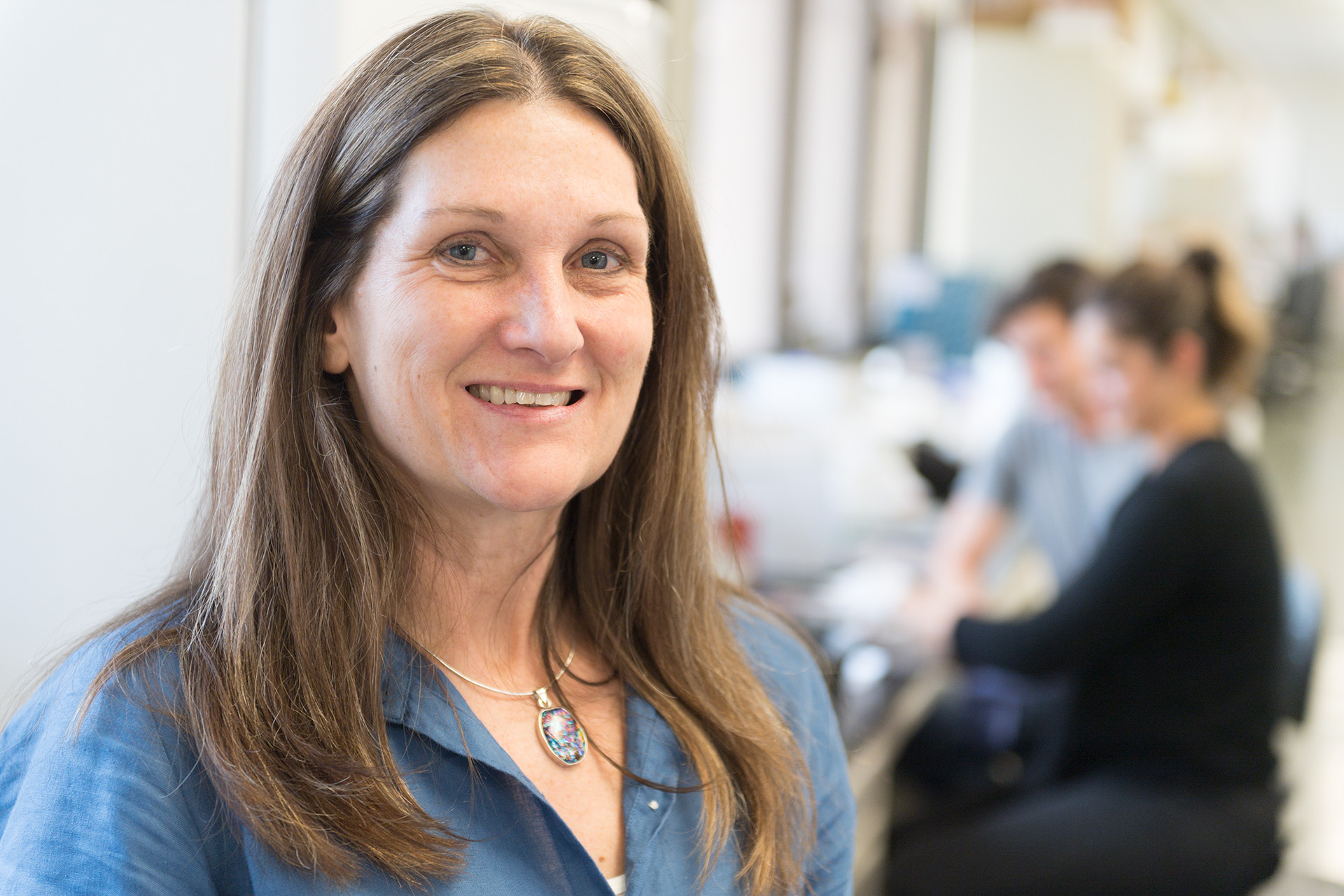
Dr. VandeWoude is a professor of comparative medicine as well as associate dean for research in CVMBS. Photo: William A. Cotton/CSU Photography
Dr. Susan VandeWoude, associate dean for research in the Colorado State University College of Veterinary Medicine and Biomedical Sciences, and member of the National Academy of Sciences, has been named the director of the CSU One Health Institute. She will assume full-time duties July 1, 2020, after completing a Fulbright scholarship award.
VandeWoude will lead the institute, which is focused on examining interconnected problems in health, between humans, animals and the environment. Her new role will work to enhance interdisciplinary approaches to gain additional insights into the complex health relationships, said CSU Vice President for Research Alan Rudolph.
“The One Health Institute explores the interfaces and relationships between animals, humans and the environment, recognizing the connectedness of the ecosystem when it comes to disease and other environmental perturbations,” Rudolph explained.
Research on viruses
Between research, teaching and veterinary medicine, VandeWoude has served in a variety of roles at CSU. She became a faculty member in the Department of Microbiology, Immunology, and Pathology in 1991, and served as director of Laboratory Animal Resources from 2007-11. VandeWoude is a professor of comparative medicine as well as associate dean for research in CVMBS.
VandeWoude has specialized in studying immunodeficiency viruses affecting domestic and non-domestic felines that can leave animals vulnerable to other infections. Her discoveries are linked to both animal and ecological concerns and help illustrate the emergence and spread of viruses in humans. Her outstanding work in this area contributed to her election to the National Academy of Sciences in 2019.
About Sue VandeWoude
VandeWoude completed her bachelor of science at California Institute of Technology and her doctor of veterinary medicine degree at Virginia Maryland Regional College of Veterinary Medicine. After a brief time in clinical veterinary practice, she completed a post-doctoral fellowship in comparative medicine at Johns Hopkins University School of Medicine.
Her post-doctoral research involved characterization of the viral agent associated with Borna Disease Agent. She joined Colorado State University in 1990 and obtained Diplomate status in the American College of Laboratory Animal Medicine in 1991.
About One Health Institute
The One Health Institute grew from initiatives led by Dr. Mark Stetter, dean of the College of Veterinary Medicine and Biomedical Sciences, with assistance from VandeWoude. When One Health activities expanded to other colleges, oversight transferred to the Office of the Vice President for Research. The institute began in 2015 when the Office of the Vice President for Research awarded a total of $360,000 in seed grants to jump-start six promising One Health research projects across campus.
In April 2019, the initiative awarded four grants to teams exploring interrelationships of people, animals and the environment to solve important complex health problems in the Navajo Nation, the dairy industry, Colorado food systems and disease risk in Guatemala.
“I am very excited to bring together and reinvigorate the CSU One Health community, reengage with local partners, collaborate with other CSU centers and institutes with health-related goals, and operationalize ongoing and new initiatives in One Health,” said VandeWoude.
The One Health Institute is housed in Johnson Hall.